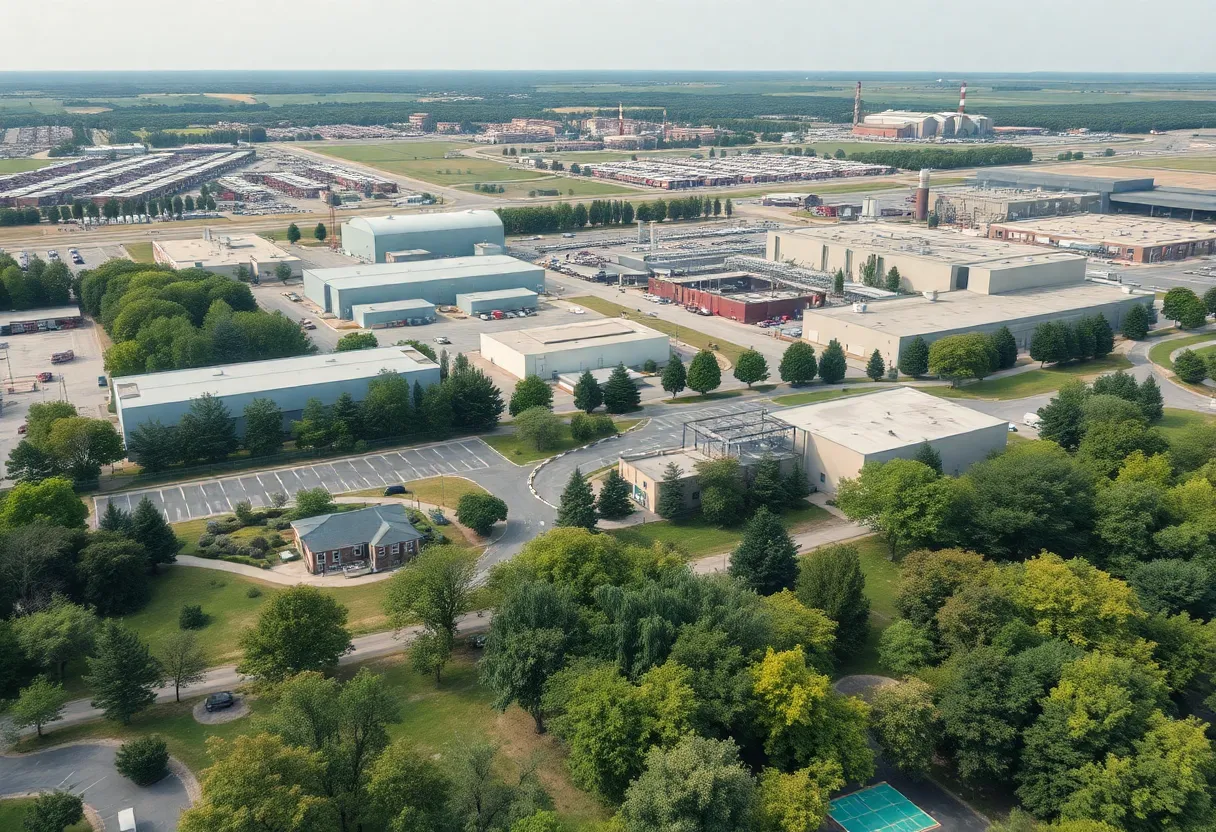News Summary
Fort Mill School District is taking proactive steps to address community health concerns over the Silfab Solar Facility located near schools. Officials are considering funding an environmental evaluation in response to worries from parents and health experts about potential risks to children’s health. As Flint Hill Elementary and Middle Schools prepare to open, residents are increasingly vigilant about the impact of industrial operations on local air quality and overall safety.
Fort Mill School District Takes Steps to Ensure Children’s Health Amid Local Concerns
In Fort Mill, there’s a buzz of activity around the school district as officials are starting to take health concerns seriously regarding a new manufacturing plant situated right next to schools. Parents, educators, and health experts are rallying together for a closer look at possible environmental impacts linked to the Silfab Solar Facility.
A Potential Health Evaluation on the Horizon
During a recent meeting of the board of education, district spokesperson Joe Burke dropped some important news. He revealed that the Fort Mill School District is considering funding a detailed environmental evaluation, driven by worries from pediatric specialists. This comes in response to recommendations made by the Southeast Pediatric Environmental Health Specialty Unit, a group focused on the environmental factors that can affect children’s health.
Flint Hill Elementary School is gearing up to open its doors this coming fall, with Flint Hill Middle School set for 2026. Both schools will be right next door to the Silfab Solar manufacturing plant, which already has residents concerned. With Silfab Solar pouring an impressive $150 million into its facility, there are many people in the area wondering whether their health is worth the price tag.
Experts Weigh In on Health Risks
Healthcare professionals, including Dr. Abby Mutic from Emory University, are raising red flags about the types of chemicals used in Silfab’s operations. Their concern isn’t just about adult health, but particularly about children’s health. Children are at a higher risk from hazardous exposures since they are still developing biologically. The letter from PEHSU urged the need for a thorough assessment of the potential risks associated with Silfab’s manufacturing processes.
Burke reassured the community that existing schools in the area already refer to high standards to tackle such health risks. The schools boast high-efficiency HVAC and air filtration systems that meet or even exceed the recommended safety precautions. However, this has not satisfied everyone, especially parents who are anxious about the chemical management and operations at Silfab.
What’s in Store for the Future?
The district is also waiting to hear from the Environmental Protection Agency (EPA) regarding their role in Silfab’s operations and whether any emergency response plans are in place. With chemicals like Anhydrous Ammonia and Hydrochloric Acid in the air, many local residents are rightly wary of the impact these possible pollutants could have on their children’s health.
While the York County Council previously approved a tax incentive for Silfab, with promises of creating 800 jobs, the decision wasn’t met without pushback from community members. Concerns about air quality and the impact of industrial operations near schools created a stir, drawing both support and opposition in equal measure.
Legal Battles and Ongoing Concerns
Currently, Silfab is contesting decisions made by the York County Board of Zoning Appeals that determined solar panel manufacturing should be classified as heavy industrial. This is not permitted in the area where Silfab is being built. As controversial developments unfold, another resident group has filed lawsuits alleging potential hazards linked to the plant’s operations.
Even amid the swirling challenges, Silfab maintains that they are complying with safety regulations and keep open lines of communication with both the local community and authorities. However, the calls for environmental evaluations echo loudly as parents and guardians are increasingly vigilant about safeguarding the health of their children while balancing economic growth in their community.
What’s Next for Fort Mill?
As Fort Mill residents continue to discuss the implications of this new manufacturing facility, all eyes will be on both the school district and Silfab Solar. The upcoming evaluations will surely provide important insights into effectively managing the intersection of industrial development and community health. Will the possible environmental evaluation calm the fears, or will it bring more questions than answers? Only time will tell.
Deeper Dive: News & Info About This Topic
HERE Resources
Rock Hill City Council to Vote on New Zoning for Panthers Site
Yemassee Residents in a Monkey Chase: 24 of 43 Escapees Recovered!
Yemassee Residents Concerned Over Monkey Escape
York County Health Committee Revamps Parks Funding
Fort Mill Town Council Approves Cultural District and Budget Amendments
Mass Firings at U.S. Institute of Peace Amid Administration Changes
Monkeys on the Loose: South Carolina Residents Urged to Stay Safe
Rock Hill Moves Forward with Rezoning Plans
Four Rhesus Macaque Monkeys Captured After Two-Month Escape
Power Restoration Efforts Underway in the Carolinas
Additional Resources
- Herald Online: Fort Mill School District Takes Steps to Ensure Children’s Health
- QC News: Fort Mill Schools Considering Environmental Impact Study
- SC Daily Gazette: Parent Permission Required for K-12 Students Reading ‘Crank’
- WCNC: Fort Mill SC Silfab Plant Controversy
- Herald Online: Recent Concerns with Silfab Solar Facility
- Wikipedia: Environmental Health
- Encyclopedia Britannica: Environmental Health
- Google Search: Fort Mill Silfab Solar Facility
- Google Scholar: Children’s Health Environmental Impacts
- Google News: Silfab Solar Fort Mill







